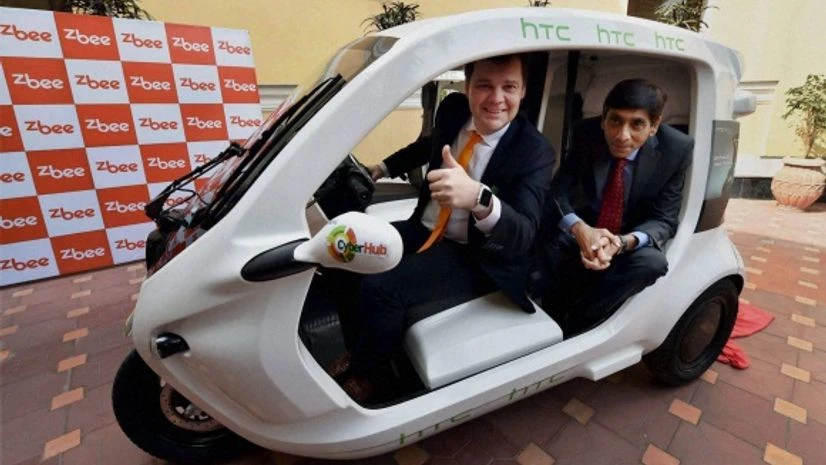Sweden-based electric vehicle maker Clean Motion plans to invest $10 million (about Rs 66 crore) in India over the next three years to expand operations including setting up of an assembly unit for its Zbee three- wheelers in the country.
The company, which runs its electric three-wheeler Zbee in Gurgaon's DLF Cyber City, aims to provide last-mile connectivity in India's congested urban areas and is talking to mall developers in Bengaluru and Mumbai as well as SEZ operators in Hyderabad.
Besides, it is also targeting tourist spots like Taj Mahal to operate its fleet of electric three-wheelers, which are positioned as a premium product unlike e-rickshaws.
More From This Section
As a startup, the company has already seeded $1 million in the project, he added.
"Our product is powered by lithium ion batteries with design and looks targeting at the premium segment. Not only through fares, we are also looking at advertising on Zbee as a second revenue stream," he said.
Elaborating on the company's expansion plans in India, he said: "We aim to be present in all the places where there is requirement for last mile connectivity. Whether its malls, metros or tourist places we are going to be there."
To meet its targets, Arora said Clean Motion is ramping up assembly of Zbee in India.
"Currently, we manufacture two units a day and aim to increase it to four units a day by the end of this year at Faridabad," he said.
It imports most of the Zbee components from Sweden and is now looking at locally manufacturing of critical parts.
"We are looking at locally producing main mechanical parts except for the body in India. The body shell is imported from Malaysia which is not a problem," Arora said.
The company operates on a franchise model and has entered into an agreement with DLF group to operate Zbees for providing last mile connectivity from DLF CyberHub to nearby offices and metro stations.
Under the franchise model, the company rents out vehicles and even looks after the hiring of drivers for three seater Zbee, which can attain a top speed of 45 km per hour and run for 50 km on a single charge.
He added the company is also in the process of developing a cargo version of the vehicle, which would mainly cater to the e-commerce firms in the country to be used in product deliveries.

)
